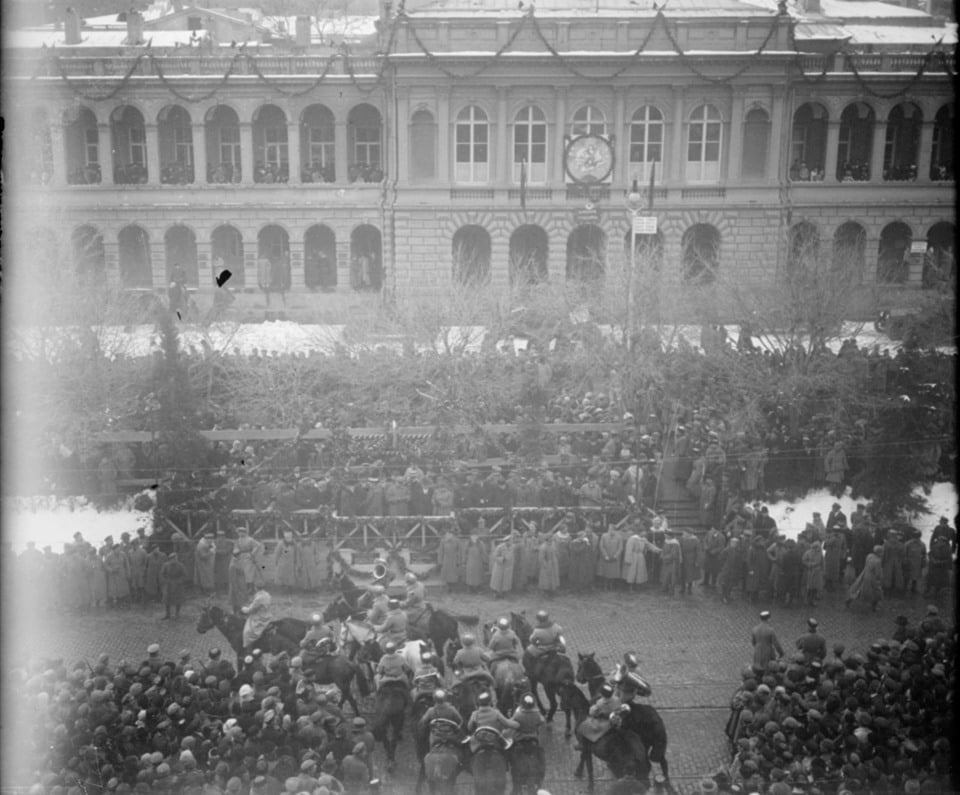100 Years Ago Today Soviet Russia Recognized Georgia. That Agreement Still Matters
Author: Giorgi Kandelaki, Member of the Georgian Parliament, European Georgia Party
When commenting on banning of flights to Georgia in June last year, Russian President Vladimir Putin repeated popular point often heard in Moscow on Georgia: Both Abkhazia and Tskhinvali Region/South Ossetia were “gifted” to Georgia by Stalin. Therefore – the argument goes – Russian troops in those regions are merely restoring historic justice. The Russian narrative of Georgia’s 20th century history views the three year Georgian independence of 1918-1921 as an anomaly and its incorporation into the Soviet Union as just and fair (so many Georgians were Bolsheviks, they say).
If one could think of a single document that negates this worldview it would be the several old typewritten pages signed 100 years ago today in Moscow known as the Treaty of Moscow with which Soviet Russia extended de jure recognition to Georgia.
Signed by Georgian MP and Government negotiator Grigol Uratadze and Deputy Soviet Russian Foreign Commissar Lev Karakhan, the Treaty came as a surprise to many in both Tbilisi and Moscow, which looked upon Georgia’s efforts to build European-style democracy with suspicion. By extending the de jure recognition to the Georgian republic not only did Russia relinquish all sovereign rights over it, but it also affirmed both Abkhazia and Tskhinvali Region/South Ossetia (which, prior to 1922, was not an administrative district in any form) as parts of Georgia. By the time of the signature, these provinces were under the control of the democratically-elected Georgian Government.
While Stalin was building his power base as Commissar for Nationalities in Moscow, Georgia had established itself as a westward looking parliamentary democracy with free elections, multiparty parliament and local government, vibrant press, and even jury trials. For Stalin, who detested Georgia as a political idea, recognition of Georgia’s independence was a mere pause as the Soviet Russia was waging war with Poland. Evolution of his native land into a western-style pluralistic democracy where both himself as a political figure and his party of Bolsheviks had no tangible public backing would surely destroy his bid for leadership. It was precisely Stalin who pushed for Georgia to be invaded as soon as possible while Lenin, as historical records show, was arguing for the postponement of the “resolution” of the Georgian issue.
With the Treaty, Georgia committed to legalize the communist party and release communists jailed for trying to overthrow its Government. But this did not help the Bolsheviks’ hope of Georgia embracing them. As the then Soviet Russian Ambassador Sergei Kirov pointed out in his telegrams at the end of 1920, without direct military intervention there was no hope of the “victory of soviet power” in Georgia.
Opposition in the Georgian Parliament attacked the Treaty as a concession that would threaten the Georgian independence. But the main rationale for signing it of Noe Zhordania’s Social Democratic Government proved right – western powers did decide to de jure recognize Georgia on January 26, 1921. This was already a sign of alarm for Stalin who made sure that two Russian Red Armies invaded Georgia from five different directions already on February 11.
Against overwhelming odds the Democratic Republic of Georgia resisted the Bolshevik advance for a month – its only foreign assistance being the French Navy which attacked the Red Army in Abkhazia. What followed the inevitable was a bloodbath that would foreshadow the horrors Stalin would unleash in few years’ time on grander scale. Of the 130 elected members of parliament, 108 stayed in Georgia of which 51 were shot. Tens of thousands perished in multiple waves of executions and deportations. According to a 1954 report from the U.S. Congress Select Committee on Communist Aggression, several thousand dissenters were executed over the course of three days following an uprising against the Soviet occupation in August 1924.
Russian propaganda effort in Georgia today is attempting to instill the personality of Stalin as a symbol of fake anti-western Georgian nationalism. Seven new statues of Stalin have appeared in Georgia since 2012 at least in part due to the Government’s ambivalence vis-à-vis that effort. A small-town boy who made it so big, won the war (never mind that he co-started it) – should not a patriotic Georgian be proud?
Distorted 20th century history is a potent weapon of today’s Russia against its neighbors wishes to break with the soviet past. Remembering symbols such as the 1920 Treaty will eventually lead to that weapon running out of ammunition.
